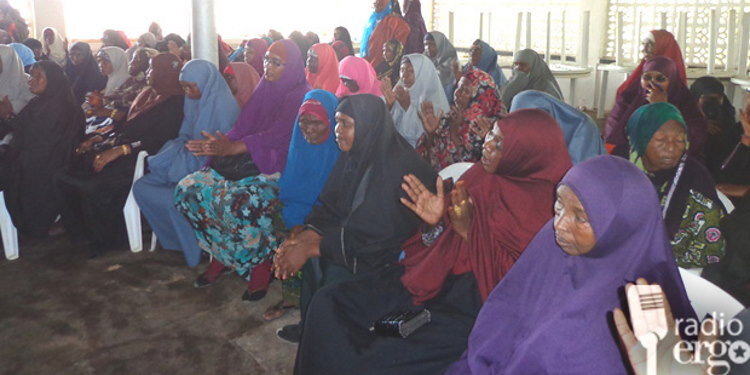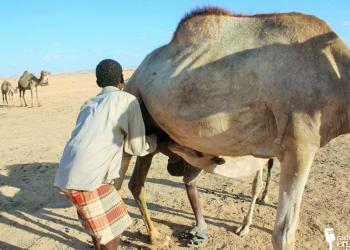(ERGO) – Saynab Ahmed Abdirahman is a busy woman – farmer, civil servant, shop owner, wife and mother – and has taken on yet another role giving free farming training to women in her home area of Arabsiyo, 30 kilometres west of the Somaliland capital, Hargeisa.
She decided to train the women farmers whilst studying for her degree in agriculture at Tima Adde university in Gebiley, from where she graduated in September, to empower women financially.
“I like to see the progress of women whether they are in business or in farming. I like to see them independent,” Saynab told Radio Ergo.
“I train the women farmers on adapting to climate change and the best times to cultivate a particular crop, as we are currently experiencing the impact of climate change here.”
On her own four-hectare farm on the outskirts of town, she organises training sessions for the local women in soil preparation, seasonal crop selection and planting, use of pesticides, as well as bookkeeping so they can keep proper track of their money.
Productivity on the women-run farms in Arabsiyo has improved with the training. Some used to make losses because of poor farm management. Saynab has trained 21 women on how to turn spoilt fruit into jam instead of throwing the fruit away.
Ifrah Mohamed Abdillahi has been working hard on her seven-hectare farm outside Arabsiyo for the last three months after receiving Saynab’s training. She has planted onions, tomatoes and cabbages for the first time since her husband died two years ago, alongside the orange, lemon and olive trees on the farm.
“I didn’t have much understanding about farming. I thought it was work done by men only, but now I understand a lot more. I do everything from planting the seeds, watering every morning, and harvesting,” she said.
Ifrah is assisted by her children on the farm. Local women selling vegetables visit her farm to buy when she harvests specific produce.
She is managing to pay $120 monthly fees for six of her nine children enrolled in Badbaado secondary school from her farm earnings. She hopes to open her own vegetable shop once she saves enough.
“The training I received has changed my life for the better,” Ifrah declared. “It has totally changed my perspective on farming. I was raised believing that women belong at home, but when you work on your own you become independent.”
Kadra Sheikh Abdi, another farmer in Arabsiyo, is managing to support her nine siblings from the proceeds of their eight-hectare farm. She sells her fresh produce in the market. Since the training, she farms on her own without hiring other women as workers.
“I had an idea about farming, but her [Saynab’s] lessons added some important information I was missing. When you are taught something you didn’t know, it is a great benefit,” Kadra said.
Meanwhile Saynab hopes to extend the women’s training across Somaliland. She divides her time between her job at the ministry of agriculture, training women, and working on her own farm. She also owns a grocery shop selling the vegetables she harvests. As a mother of four, her husband is also involved on the farm.
Saynab chairs a rotating savings groups in Arabsiyo with a membership of 250 women farmers, pastoralists and businesswomen. The group provides loans to women who cannot raise money to plant their farms. They pay back the loans after harvest.
As a beneficiary of education, she urges others to follow in the pursuit of knowledge.
“I joined the university because I wanted to further my studies. When I looked at my CV, it ended at high school education, so I decided to study for a degree in agriculture to advance my knowledge,” she said.











